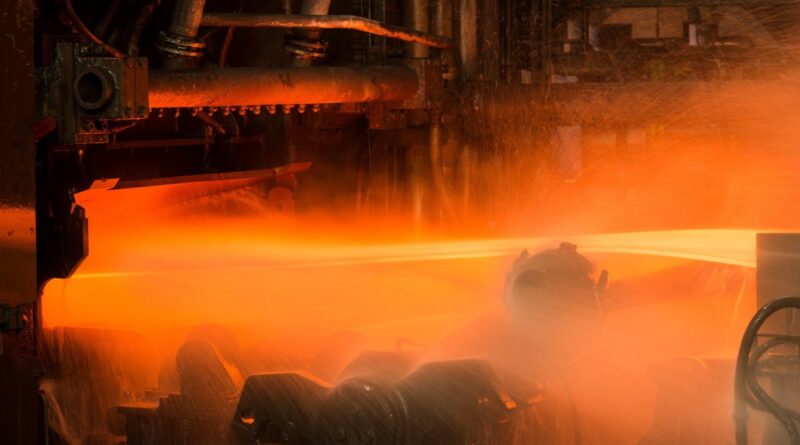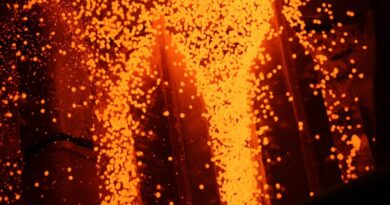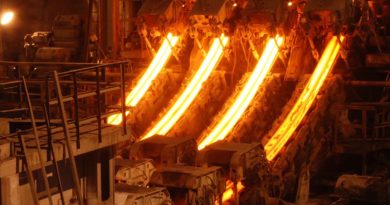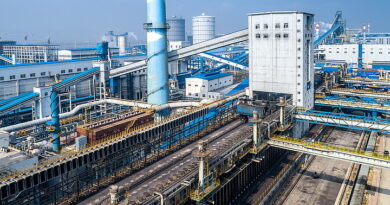AMSA to idle blast furnace and arc furnace
In terms of the JSE Ltd. Listings Requirements, ArcelorMittal South Africa is required to publish a trading statement as soon as the company is sure that there is a reasonable degree of certainty that the financial results for the six month period ended 30 June 2020 differ by at least 20% from those of the previous corresponding reporting period.
Based on the information currently available, the Company expects headline loss for the period to increase by at least R2 000 million (headline loss for 2019 was R638 million).
Loss for the period is expected to increase by at least R1 700 million (loss for 2019 was R644 million).
Following an already demanding 2019, the first half of 2020 proved to be an incredibly difficult period given the extraordinary and widespread impacts on social and business freedoms wrought by the global COVID-19 pandemic. The impact on economic activity was abrupt and, therefore, the business response thereto needed to be decisive.
Being part of the international ArcelorMittal group, ArcelorMittal was able to learn from and participate in the crafting of a rapid response plan to protect its people, its assets and its financial lifelines.
In addition to the substantial and sustainable cost improvements implemented to date, extraordinary cash management and cost control measures were implemented to ensure sufficient liquidity in response to disrupted and seized supply chains due to the pandemic.
With only small volumes of commercial coke sales (to ferro-alloy producers) being possible in the first month of the lockdown announced on 27 March 2020, reducing the fixed cost structure of the Company became critical while rescaling cash outflows to the dramatically reduced cash inflows.
The advent of Lockdown Alert Level 4 on 1 May 2020 (and the ability to operate at 50% of normal labour levels) resulted in the Company being able to commence supply by completing its work-in-process inventories and dispatching its finished inventories.
On 1 June, Alert Level 3 allowed for a return to unrestricted operations. However, although more customers returned to operations, the vast majority operate on reduced shift patterns, reflective of the weak economic activity levels.
Considering the high pandemic infection rates currently being experienced within South Africa, whilst prioritising the safety and well-being of our people, we are continuing to match our production utilisation to the evolving demand situation. This means the need to responsibly restore production levels in order to avoid the risk of a major infection event within operations.
Although the economic lockdown and its consequences overpoweringly define the first half of the year, and specifically the second quarter, the first quarter was impacted by (i) weaker than anticipated demand as the news regarding the spread of the COVID-19 virus and the anticipated (and now realised) sovereign downgrades depressing business sentiment; and (ii) significant production interruptions due to electricity load shedding, and raw material train cancellations and delays due to a major increase in cable theft.
The consequential stop-start impacts of these events are beginning to materially impact upon the reliability of plant and equipment, and diluting the improved underlying performance of the business.
ArcelorMittal remains steadfast in making the difficult decisions to position the business for sustainability through these future-shaping events.
Consequently, having reassessed it strategic asset footprint for 2020, it has been decided to idle Blast Furnace C at Vanderbijlpark, and the Vereeniging Electric Arc Furnace until demand recovers.
With the current asset utilisation, ArcelorMittal will be able to fully supply the forecast demand for the second half of the year and will continue to reassess the need to return additional capacity to production.
The Company anticipates that it will take some time for steel demand to return to historical levels , and taking cognisance of the asset footprint review, a large scale labour re-organisation in terms of Section 189(3) of the Labour Relations Act 66 of 1995, was announced on 18 June 2020.
The business is firmly committed to expeditiously securing significant cost savings though, recognizing the dire unemployment situation the country faces, we remain open to finding a flexible solution to do so.
Compared to the previous year, exchange rates between the South Africa rand and the US dollar weakened significantly. Ordinarily, a weakening exchange rate has a positive impact on the financial results of the Company.
However, with the severe erosion of revenue during the economic lockdown, and given the large foreign- denominated payables position, the Company will report realised and unrealised exchange rate losses for the period.




